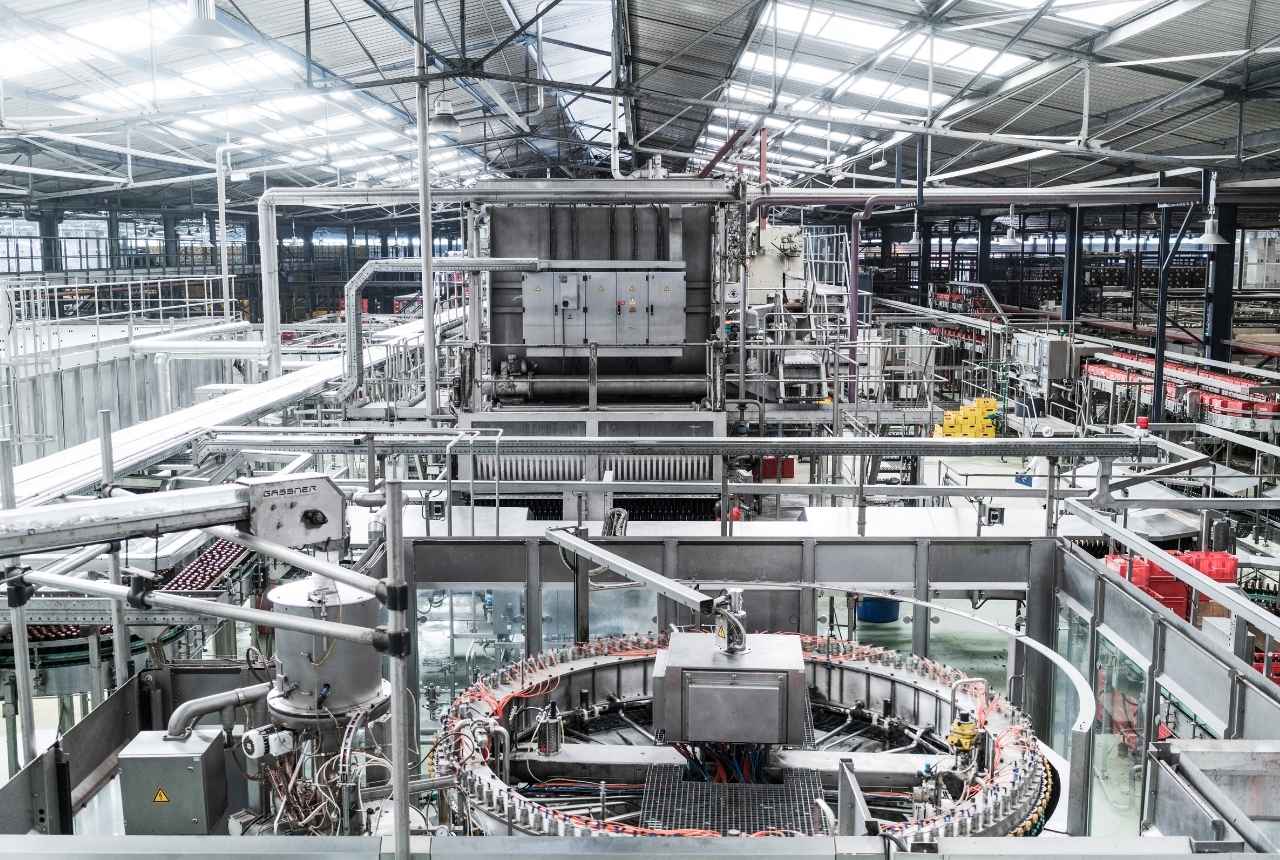As today’s businesses operate on a global scale, they face multifaceted challenges and ever-increasing complexities in supply chain operations. As the demand for their products is often unpredictable, they have to focus on more than just efficiency and innovation.
That’s where Supply chain management comes into the picture. It helps businesses build a more resilient network and optimize existing processes to keep up with the changing circumstances and minimize supply chain shocks. Let’s explore how you can delight your customers, maximize margins, and gain predictability in today’s volatile markets from effective supply chain management.
What is Supply Chain Management?
Supply chain management encompasses all those activities involved in transforming raw materials into finished goods and delivering them to the end customer. It includes everything from raw material procurement, production planning, design & development, and warehouse management to shipping.
As today’s supply chain processes are becoming more complex than ever, businesses across the globe are using sophisticated tools and breakthrough technologies such as ERP software to transform their traditional processes, streamline activities, and gain deep analytical capabilities.
10 Key Advantages of Supply Chain Management
1. Boost Productivity
Careful planning and execution during the supply chain activity enable companies to deliver products on time. They can deliver products more smoothly and on time, regardless of unexpected challenges (such as changing weather).
2. Reduce Manual Errors
Supply Chain Management Tools automate various labor-intensive & error-prone tasks and make the entire process fully automated. It ensures smooth operations across diverse supply chain processes and helps meet high standards & consistency.
3. Lower Production Costs
With an efficient supply chain strategy in place, businesses may be less affected by sudden spikes or drops in the demand for their products. They can forecast demand for their products and develop proactive strategies, ultimately reducing production costs.
4. Reduced Shipping Costs
Supply chain management involves various procedures, from monitoring order patterns, tracking shipments, and optimizing delivery routes to making requisitions. Adopting ERP Application allows businesses to benefit from lower shipping costs, better cash flows, and higher revenue generation.
5. Resilience to Supply Chain Shocks
Other advantages of supply chain management include lower supply chain shocks. An efficient supply chain management strategy delivers real-time data metrics at your fingertips. It helps you manage your stock more efficiently, monitor the performance of your distribution channels, and make your organization resilient to supply chain shocks.
6. Mitigate Financial Risks
Typically, businesses face a myriad of challenges during the supply chain process, from rising transportation costs to port congestion. They can combat such challenges efficiently by performing a thorough cost & revenue analysis, identifying potential pitfalls, and becoming reactive rather than proactive to challenges. That’s easy when you integrate a Financial Management System with your supply chain management process.
7. Optimum Inventory Levels
Integrating an Inventory Management System within the supply chain process acts as a robust framework for tracking and managing your inventory efficiently, leading to lower instances of stock tracking errors, inventory mismanagement, and storage costs. It brings 360-degree visibility into inventory operations and optimizes the replenishment process.
8. Informed Decision-making
SCM allows you to analyze your spending, negotiate better deals with your suppliers, and free up the business capital tied up in the stock that isn’t selling. With those insights, you can evaluate what’s working and what’s not and make effective decisions.
9. Better Stakeholder Relationship
With proper supply chain management in place, businesses benefit from improved transparency & traceability throughout the entire process. They can prioritize certain tasks, build a stable supply chain network, and promote better relations with external stakeholders.
10. Quality Assurance
Supply chain management standardizes different aspects of the procurement process and determines from where raw materials are procured, how long it takes them, and how different quality assurance checks are performed. This helps build better products that last longer and provide a better customer experience.
Which Stakeholders Benefit the Most from Supply Chain Management?
1. Business Customers
Supply chain management allows businesses to deliver products on time, in the right quantity, and to the right customer, leading to better customer experience. With faster shipment, fewer tracking errors, and improved quality, brands gain a loyal customer base and repeat purchases.
2. Senior Management
Senior management benefits the most from the advantages of supply chain management. Nowadays, many businesses are implementing a Cloud ERP to transform raw data into actionable insights and make strategic decisions to overcome various supply chain inefficiencies. This helps them gain operational efficiency, cut costs, and become reactive to new market dynamics.
3. Investors & Lenders
The success of a business ultimately results in better profits for its investors. As your business benefits from greater supply chain agility, increased profits, and capturing new markets, your stock price may appreciate, leading to increased profits for your investors.
4. Labor Force
Optimizing all aspects of the supply chain, from procurement to logistics, brings standardization and a smooth flow of information throughout the entire procedure, resulting in better clarity for your employees. As a result, they can focus on achieving speed, quality, and efficiency.
5. Warehouse Staff
Other stakeholders that benefit from an efficient & agile supply chain process are the warehouse staff. The use of a Warehouse Management System in the SCM reduces the potential for human errors and increases efficiency in picking, inventory handling, and shipping operations.
Also Read : What is AI in Supply Chain? | Meaning, Advantages And Future Trends
Proven Ways to Gain Supply Chain Agility
1. Cultivate High-value Supplier Partnerships
Build better relations with your suppliers, evaluate their performance on a timely basis, and work with them for cost-efficiency. This will help you gain the benefit of diversification and manage your risks in an efficient manner.
2. Adopt New Technologies
Adopting new technological solutions such as the ERP, blockchain, the Internet of Things (IoT), big data analytics, and autonomous vehicles will help you streamline the supply chain process. Deploy the best ERP software in India to improve visibility, improve production planning, align resources efficiently, and make better forecasts.
3. Holistic Demand Forecasting
Timely and accurate demand forecasting is the first step towards making your products available at the right time, at the right place, and to the right people. You may want to capture your historical demand data to identify seasonal trends & patterns and minimize the risk of inventory obsolescence. Fortunately, you can automate such labor-intensive tasks with modern manufacturing ERP.
4. Decrease Order Cycle Time
The Order Cycle Time is the duration it takes for your goods to reach the customer after they have placed an order. You may take a series of measures to decrease this time. For example, consider reducing labor-intensive operations in order management, automating payment receivables with AR automation, and lowering your reliance on manual inventory tracking.
5. Fewer Suppliers
Perform a careful evaluation of all your suppliers and choose the ones that offer the best deals and better quality materials. Build strong relations with these suppliers. Keep in mind, while cutting down on your supplier’s list, don’t be over-dependent on a single supplier.
Future-proof Your Supply Chain with Sage X3
Are you looking to simplify complex supply chain processes and ensure smooth operations across diverse operations? If so, you will need a highly flexible & customizable solution that adapts to your changing needs and supports data-driven decision-making.
Sage X3 is multi-functional software that empowers your business with deep analytical insights, smooth workflow, and other business-critical functions required to anticipate demand patterns, dynamically adjust pricing, enhance order fulfillment, and reduce delays. Deploy it today to revamp your labor-intensive supply chain process.






